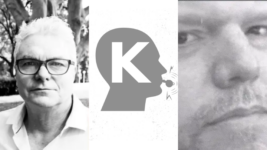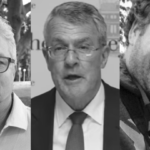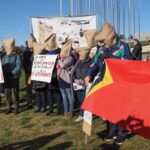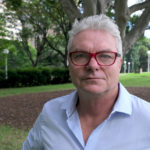Exposing Crime and Corruption in Government is a Criminal Offence in Australia

This week has been quite a week in terms of the seven-year-old saga involving the prosecution of the 2018/19 launched public service whistleblower hitlist, as two of the three public service disclosers on it, former ATO officer Richard Boyle and ex-ADF lawyer David McBride, have further been punished for the act of whistleblowing, despite the Public Interest Disclosure Act 2013 (Cth) encouraging it.
Established under the watch of Coalition attorney general Christian Porter, the list of those to be punished for the act of speaking up about government wrongdoing, included former ASIS officer Witness K, McBride and Boyle, and just for good measure, ACT barrister Bernard Collaery was thrown into the mix for his alleged participation in exposing the government lies that his client, K, revealed.
After a court found that his act of whistleblowing to the press about ATO malpractice was covered by the criminal immunity in section 10 of the PID Act, Boyle was made to plead guilty to a reduced number of criminal offences on Tuesday – four single crimes down from an original 66 counts – because the preparatory acts he took in proving his case, weren’t provided the same immunity.
While the long-awaited appeal of McBride’s conviction and draconian sentence – 5 years and 8 months – for the act of whistleblowing took place the following day and resulted in the ACT Court of Appeal rejecting all grounds of appeal, which not only maintained the full force of the original ruling, but it ensured against any chance of him serving his remaining time in the community.
As this week’s court developments occurred, the other key architect of the war on public service disclosers, former Labor AG Mark Dreyfus, has been removed from the firing range and is now warming the backbench. And while his successor, Michelle Rowland, will likely promise reform, that’s exactly what he did, while simultaneously guiding Boyle and McBride to their multiple convictions.
Window dressing lawmaking
In his 19 June 2013 second reading speech on the PID Act, Dreyfus outlined that the laws he had drafted as the then nation’s chief lawmaker were to facilitate public service internal disclosures that should be dealt with by public officials, which would then “remove incentive for the discloser to make public information to parties outside government”.
Dreyfus added that “recourse for making disclosures outside of government should be exercised with reserve when reported wrongdoing is not being properly investigated and rectified” internally and public interest is not undermined. He further explained that, despite criticisms of it being “difficult to understand”, the bill also set requirements for making “a qualifying protected external disclosure”.
The review of the PID Act took place whilst Dreyfus was in opposition. Known as the Moss report, the 2016 document outlining the independent findings made 33 recommendations for improvements. The Coalition failed to respond to the report until 2020. And Dreyfus said in 2021 it had been a “great disappointment” to watch the reforms unactioned and he promised to deliver them if in office again.
Once back in office, Dreyfus, in November 2022, tabled his first tranche of PID Act reforms, which were needed to facilitate the mid-2023 launch of the National Anti-Corruption Commission, or the NACC, which is an integrity watchdog that does nothing, and the then AG explained these reforms were ahead of a major overhaul of the PID Act, with public consultation taking place beforehand.
Dreyfus’ office even produced a November 2023 consultation paper on how to improve the PID Act, which contemplates extending section 10 criminal immunity to preparatory acts involved in making a disclosure, which would have meant that Boyle had always been innocent. But Dreyfus then sat on his hands, he didn’t progress the overhaul prior to the last election, and he then lost the AG position.
Mission complete
By the time Dreyfus was back in the position of Australia’s chief lawmaker in May 2022, he’d promised to reform the PID Act and to better protect whistleblowers. However, at that point in time, the whistleblower hitlist only comprised of two whistleblowers, McBride and Boyle, as Witness K had already pleaded guilty, although his barrister Collaery continued to face his own prosecution.
Witness K exposed to the planet that the Howard government had bugged the offices of the Timor-Leste government in 2004 to gain an advantage on fossil fuel negotiations. In exchange for his admission of guilt in regard to the charges against him, the former intelligence head was then given a 3 month suspended sentence and was placed on a 12 month good behaviour bond.
The PID Act was drafted in a manner that ensures intelligence agency external whistleblowing is not protected under any circumstances.
In terms of what he did in saving whistleblowers, Dreyfus did release Collaery in mid-2022. He was the lawyer, who’d come to represent K as he was ASIS-approved. This development was heralded by his legions of supporters and taken as a sign of more potential reforms. Yet, three years later, and it appears that the barrister was only released because he was not one of the public service disclosers.
Dreyfus was able to release Collaery as the chief lawmaker has the power to end any Commonwealth prosecution, under section 71 of Judiciary Act 1903 (Cth).
But when the Alliance Against Political Prosecutions quizzed Dreyfus on why he didn’t also release McBride and Boyle, of whom both have masses of supporters throughout the constiuency, he replied that the power was only to be exercised under “very unusual and exceptional circumstances”, and obviously, he didn’t consider the cases against Boyle and McBride made the grade.
Boyle exposed the ATO misapplying a garnishee practice and dipping into small business accounts to make end of year figures look good, and his disclosure to the press ended the malpractice and was also protected under the law. However, he was still to be punished, and he was made to officially state that he was guilty of wrongdoing in regard to how he went about building his case.
McBride blew the whistle on the ADF attempting to wrongfully prosecute soldiers, which led to revelations about Australian special forces troops committing war crimes in Afghanistan. And despite a government inquiry recommending the investigation of 19 ADF personnel in respect of an alleged 39 murders, McBride is the only person serving any time in relation to Australian Afghan war crimes.
Prosecuting into the future
As can be seen, the actions of both major parties, or the duopoly as they’re increasingly referred to, appear to convey the clear message that if a public service employee is involved in exposing government wrongdoing to the public, there are no real protections open to prevent some form of punishment being meted out. Although the government does continue to encourage disclosers.
The only politicians that appear to be sincere in seeking to protect disclosers of government wrongdoing, which is to be encouraged in a liberal democracy, are the crossbench. Led by Independent MP Andrew Wilkie a number of crossbenchers introduced the Whistleblower Protection Authority Bill 2025, prior to the last election, and it’s likely to make a reappearance.
This legislation seeks to establish a Whistleblower Protection Authority to facilitate the investigation of disclosures, and to provide advice and assistance relating to those making whistleblower disclosures. And if passed, this bill would also create a Whistleblower Protection Advisory Council, which would advise the Whistleblower Protection Commissioner it would also put in place.
As for new attorney general Michelle Rowland, well, the media did contact her office in regard to whether she might pardon ADF whistleblower McBride this week, and it declined to comment on his case, but it did add that the incumbent is contemplating additional support for whistleblowers, which is exactly what her predecessor Dreyfus said for his entire last term in office.







